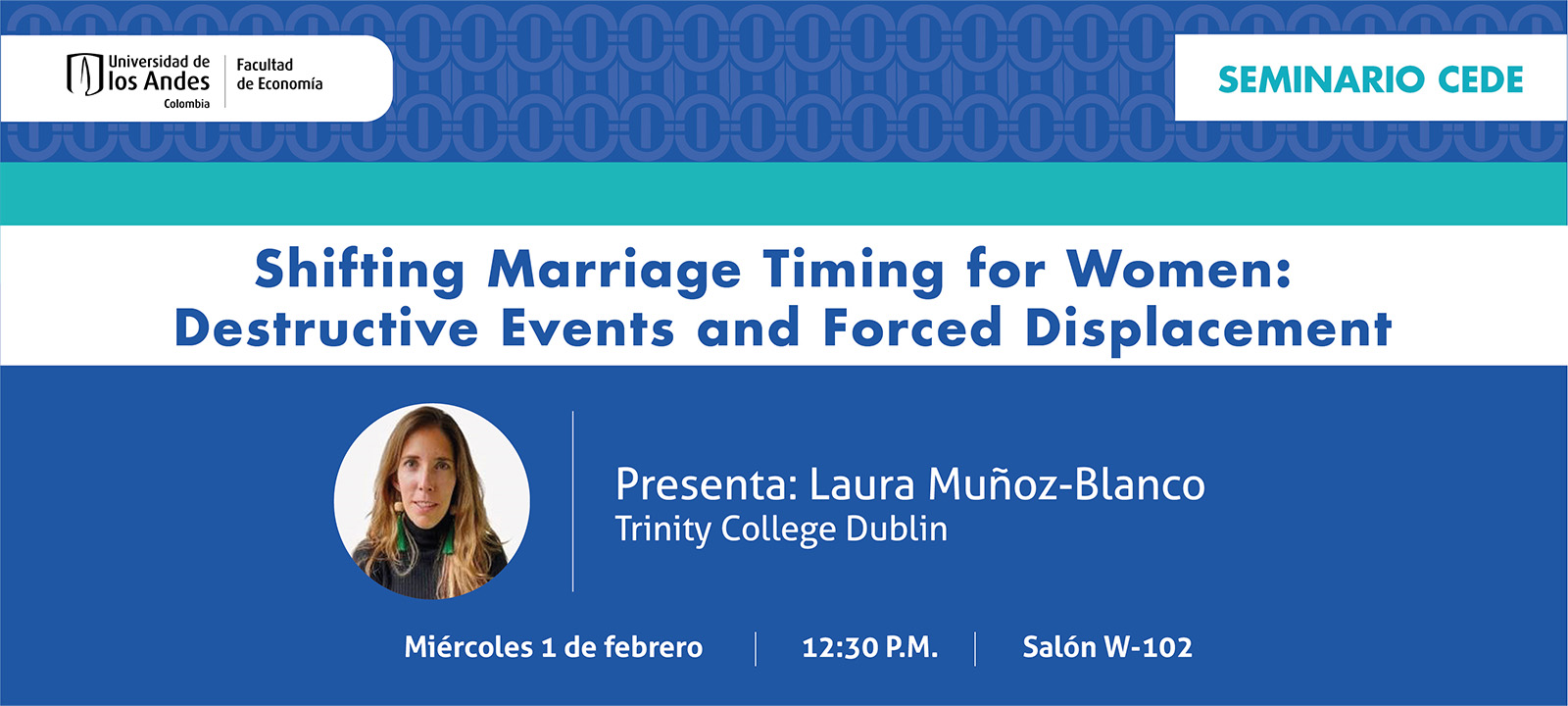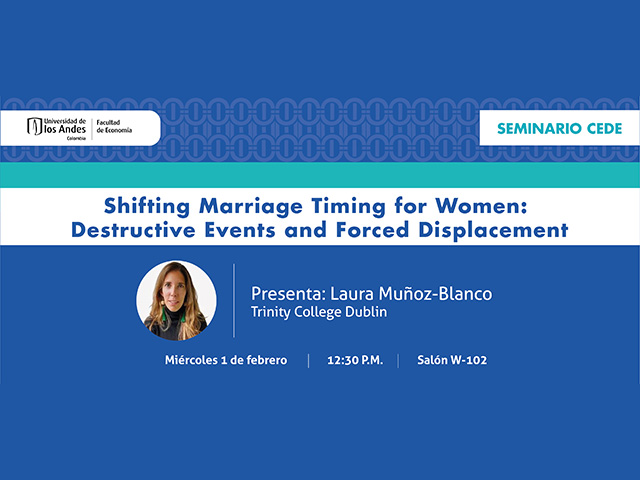Seminario CEDE - Laura Muñoz-Blanco

This paper provides evidence that exposure to shocks that trigger population outflows leads to early marriage by young women, putting them on a poor-life development path. Exploiting a novel dataset and the plausibly exogenous occurrence of earthquakes within Indonesian provinces, I show that an earthquake raises the annual hazard of women marrying before the age of 18 by 44%, compared to non-exposed young women. The overall effect of earthquakes on women’s age at marriage masks substantial heterogeneity. The effects are larger for earthquake-induced migrant versus left-behind women. By obtaining informal insurance from marriage, induced migrants marry earlier as a financial coping strategy: a marriage payment, an increase in labour return when the husband joins the household, and social integration in receiving communities. This is not the case for left-behind women. I find evidence that a supply shock drives this result. Large population outflows and school building destruction that leads to a drop in schooling explain the results for left-behind women.

